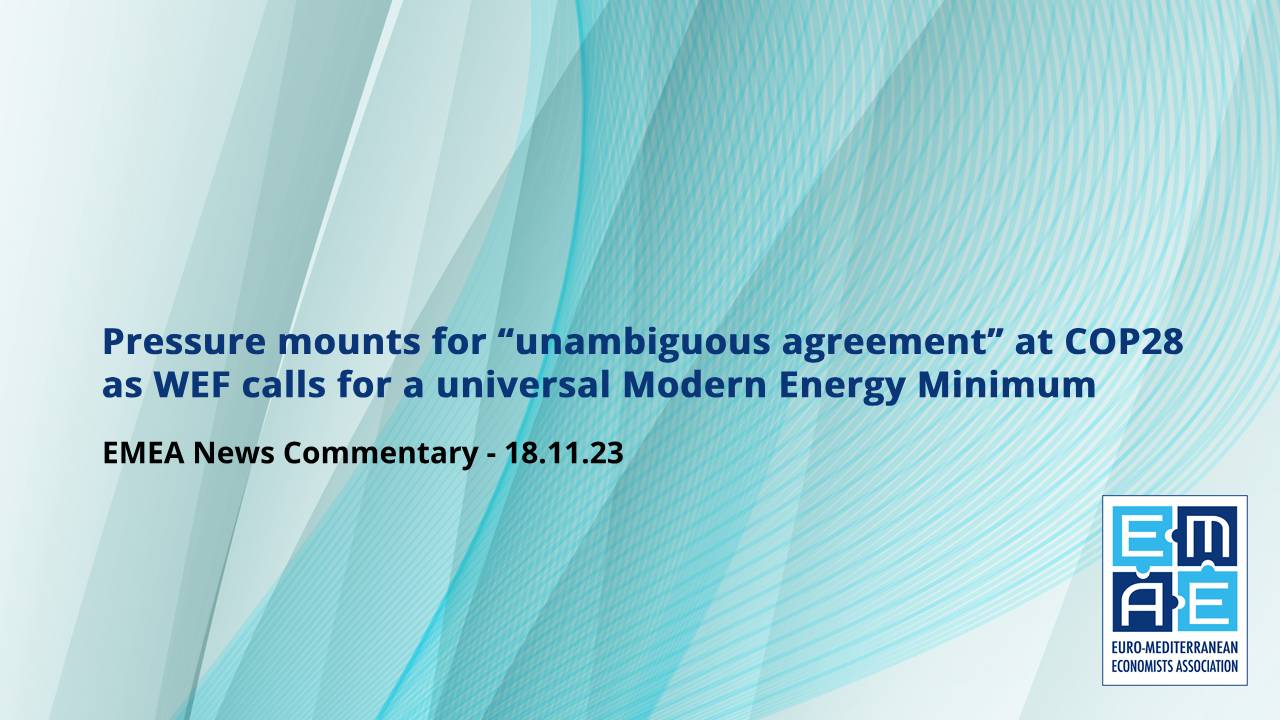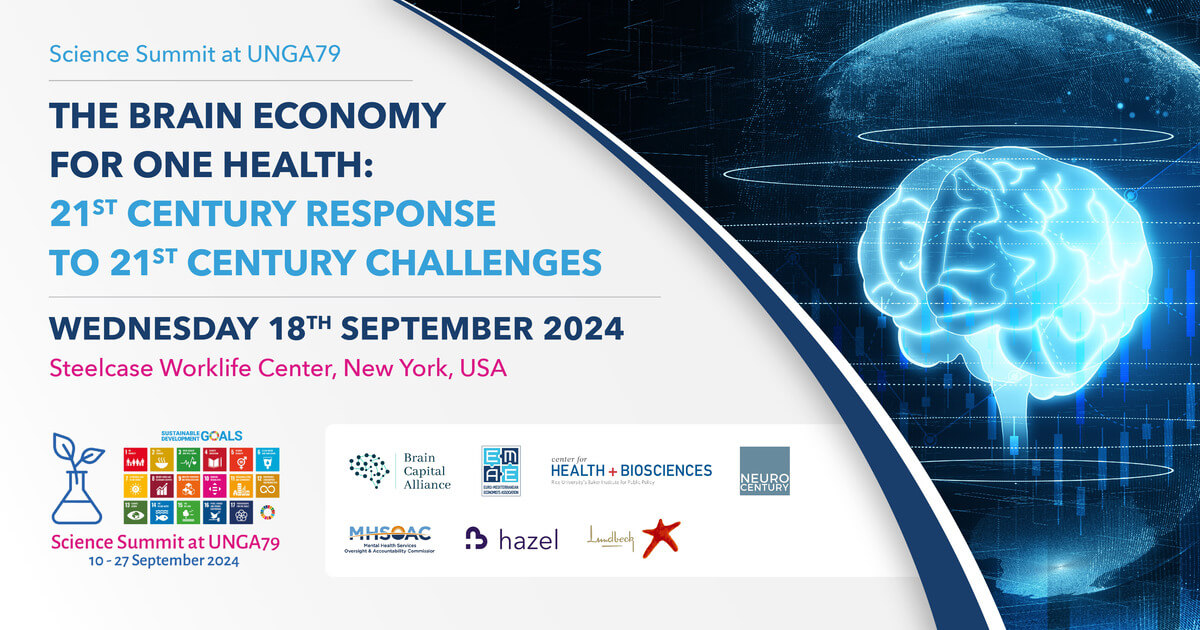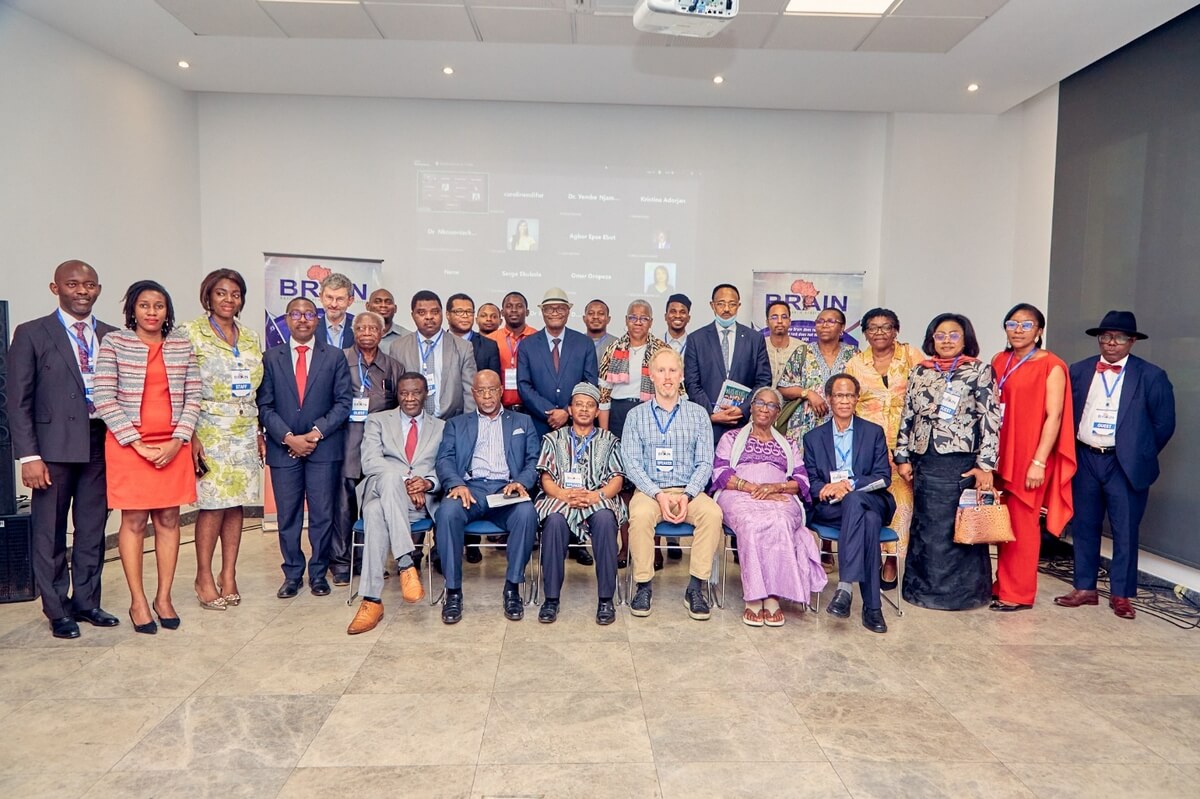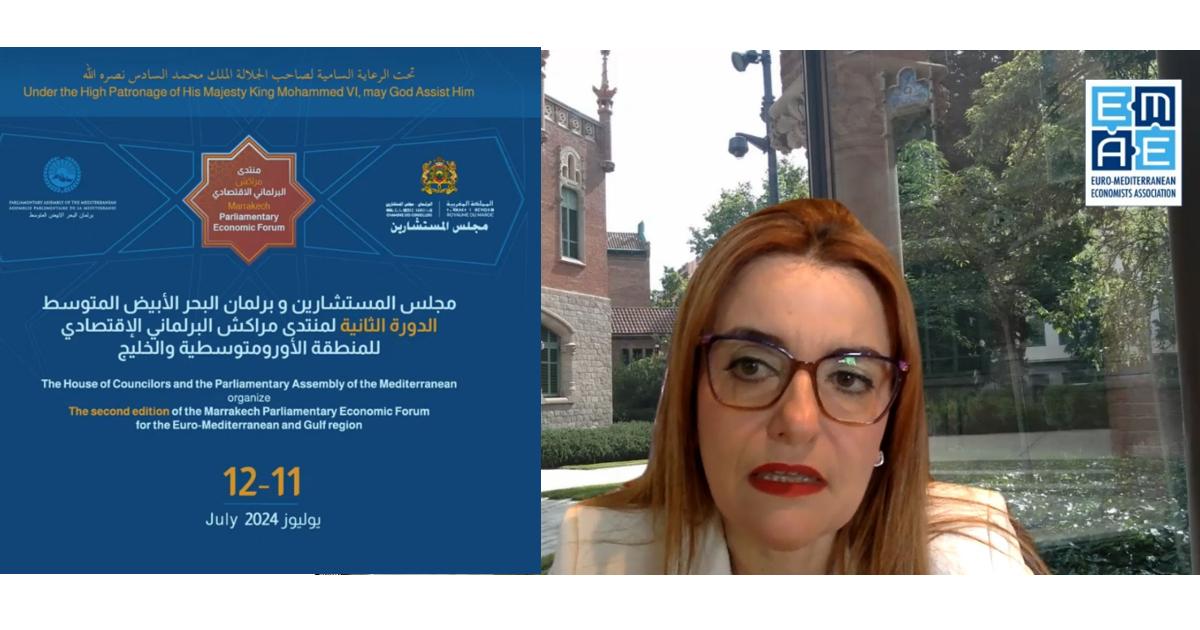The World Economic Forum (WEF) has called for greater energy ambition and urged COP28 to produce “an unambiguous agreement that everyone on the plant deserves abundant energy.”
In a pre-Summit commentary, the Forum has said that increased energy consumption was needed to raise global living standards – something that could be achieved whilst co-existing with climate goals.
For this to happen, it was essential that world leaders committed to a new Modern Energy Minimum of 1000 kilowatt-hours (kwh) per person, per year, WEF declared.
WEF said progress on achieving Sustainable Development Goals by 2030 had stagnated and frustration was growing. This was why there had been urgent calls for multi-lateral development bank (MDB) reforms and renewed focus on the Bridgetown Initiative, advocating more private capital for poor and vulnerable nations.
At COP26, countries and companies had “tripped over themselves making massive – and unrealistic – pledges to mobilise billions of dollars to achieve climate goals,” WEF observed. Goodwill could be restored at COP28 “but only if aggressive climate action is matched by aggressive action on equity and economic development.”
An unambiguous agreement was needed, declaring that “everyone on the planet deserves abundant energy – what we’re referring to as a new Modern Energy Minimum.” This meant prioritising MDB reform, the Bridgetown Initiative and COP commitment to areas such as the Loss and Damage Fund.
There needed to be clarification on how much could be spent to meet multiple objectives, citing examples like the Just Energy Transition Partnership in South Africa and the Global Energy Alliance for People and Planet (GEAPP).
Satisfying the energy requirements of three billion people
In setting out its case for the introduction of the Modern Energy Minimum, WEF said energy was a key driver of climate transition. Although bringing first-time electricity to 760 million people living without basic access was necessary, this was insufficient – the energy requirements of the more-than-three billion people living without reliable energy was just as important. They needed more lighting in their homes, sufficient energy to power modern appliances and to be able to cook healthily. This meant increasing energy usage.
“The key to driving economic growth and lifting people and countries out of poverty is higher energy consumption,” the WEF commentary stated. “That’s why we support establishing a new Modern Energy Minimum of 1,000 kilowatt-hours per person per year.”
WEF said this correlated to an average per capita income of $2500 per year, which was roughly the mid-point for lower-middle income status.
“This level is higher than basic access and covers electricity used at home to raise living standards and in the wider economy, to boost jobs and livelihoods.
“Meeting the Modern Energy Minimum is just one step towards even higher levels of energy use and income. But it would enable billions of people to climb a higher rung on the ladder, taking them into the middle class,” said WEF, adding that because poor nations were starting from such a low base, boosting energy consumption would not threaten global climate goals.
WEF noted that Africa was already using many of the cleanest energy sources, whilst many low-and-middle-income countries could succeed in achieving a clean energy future “if the rich world can help deliver the right type of finance necessary.”
Committing to a Modern Energy Minimum could help break the deadlock.
“A public declaration of energy ambition, aligned with countries’ own goals for industrialisation and full employment can deliver on both development and climate objectives,” the Forum message continued.
Meeting hyper-local level requirements
To achieve the planet-wide 1000 kwh target, it would be necessary to aggressively build out power plants, transmission and distribution lines, as well as utilising a range of on-grid, mini-grid and off-grid systems to meet “hyper-local level” requirements.
“International support for such a vision is, fortunately, exactly the mission for existing multilateral banks and development finance institutions, like the US International Development Finance Corporation and the World Bank’s International Finance Corporation.”
Unlocking balance sheets was crucial, said WEF. Currently, however, too many public financial institutions were “acting like commercial banks with an insufficient risk appetite and near-commercial return expectations.” This was drawing money away from perceived riskier investments in low-income countries.
More grants were needed to run alongside existing development investors “to unlock their balance sheets and leverage vast amounts of private sector capital via low-cost loans, guarantees, technical assistance and other tools.
“This blending of resources will allow development finance agencies to get back in the business of delivering low-cost, reliable power in poor countries and to the most energy-poor communities,” the commentary suggested.
Whilst accepting that eliminating energy poverty would come at a cost, WEF said there were ways “to leverage far more capital with existing resources than we are doing today.” Poorest countries should not be expected to electrify on purely commercial terms. Committing to a Modern Energy Minimum at COP was “exactly the type of win-win climate and development goal that we all need.”
To achieve a Just Energy Transition, WEF encouraged countries not just to announce funding commitments but to “commit to working together so that resources are directed to ensure that not only universal energy access is reached but that every individual shall reach a modern energy minimum that will support better living standards and increase incomes worldwide.”
A hopeful vision for the future
Meanwhile, COP28 and the completion of the Global Stocktake (GST) presented an opportunity to build a hopeful vision for the future, according to E3G, the independent climate change global think tank.
In a pre-Summit commentary, E3G said the world was walking a precarious path, where the level of conflict involving climate impacts, the effect on livelihoods, and economics and natural systems was at a point of no return – and greater than anything seen since the Second World War.
But COP28 could be the moment when the world pulled together. “A path fuelled by the opportunities of climate action that signals shared responsibility, and solidarity in the face of adversity,” noted E3G.
The GST provided “the political opportunity to give a new vision and direction to societies and economies worldwide.” E3G warned that with the window rapidly closing in on policies that will limit global warming to 1.5˚C, COP28 needed “to send strong signals to markets immediately and guide the actions governments need to take over the next two years.”
E3G said that the incoming COP President needed to explicitly articulate clear expectations in his pre-Chair summary, “to set the stage for impactful outcomes.”
This could be shaped around an ambitious package, built around a GST response, with the following priorities:
- Adaptation: Global Goal on Adaptation, setting out how to reduce vulnerability and build global resilience.
- Finance: Article 2.1C and New Collective Quantified Goal on Climate Finance agreements, to signal a shared aim to mobilise scaled finance to deliver climate transitions, adaptation, and loss and damage response.
- Mitigation: Mitigation and Just Transition Work Programme agreements to demonstrate resolve to keep 1.5˚C within reach.
- Loss and Damage: Loss and Damage Fund and funding agreements to demonstrate a significant shift in resourcing developing countries against climate impacts.
- Equity: To address equity to include flexibility for least developed countries and small island developing states, plus the role of finance in supporting higher ambition for developing countries.
COP28 cannot afford to fail – E3G
How greater energy ambition can rescue COP28 | World Economic Forum (weforum.org)





